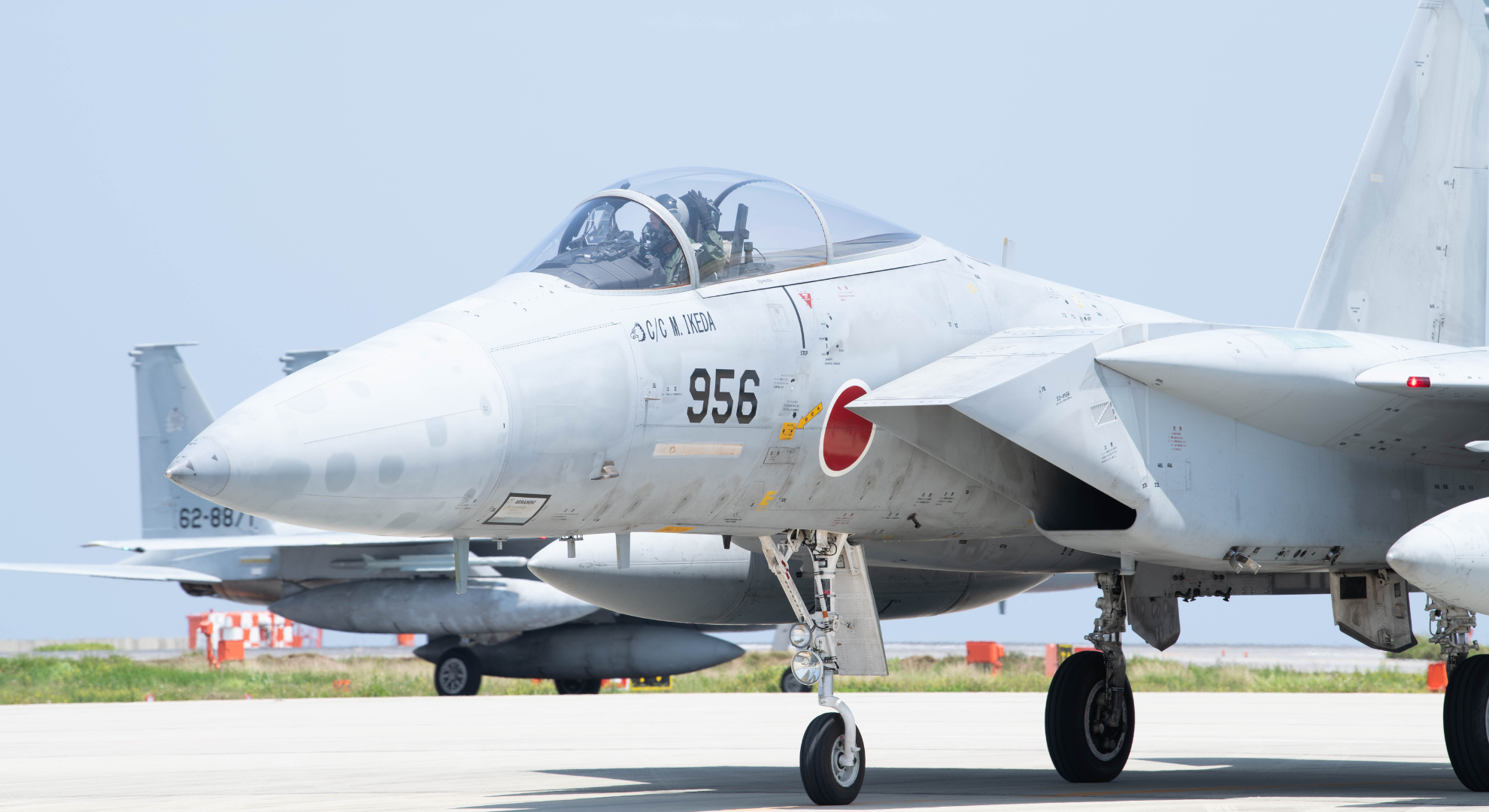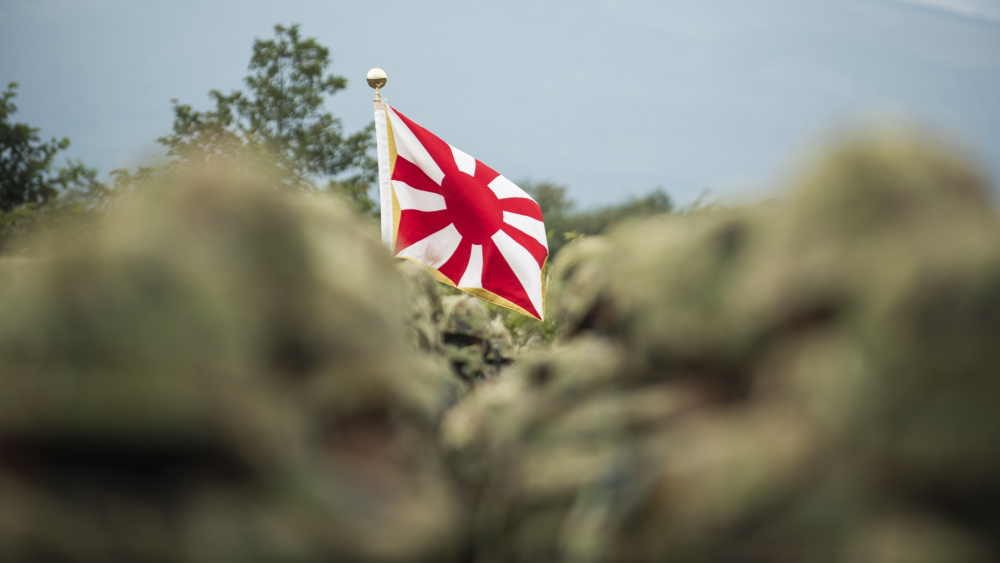Against the rising tension in the Asia-Pacific region, a Japanese daily newspaper recently released a poll to gauge public sentiment regarding the island nation’s potential involvement in an armed conflict between the United States and China over Taiwan.
An Obvious Concern
According to an Asahi Shimbun survey, about eighty percent of the 3,000 randomly selected Japanese voters expressed great concern about their government helping Taiwan and how it could get caught up in the middle. Most of these responders said Japan’s Self-Defense Forces “should limit its role to rearguard support,” nothing more than offering such as fuel, food, and medical supplies.
The survey has given the voters four degrees of concern, from “greatly” to “not concerned at all” on the potential US-China military confrontation over Taiwan. Of this, 28 percent responded “greatly,” while 52 percent said “to some degree.” Meanwhile, about 16 percent said they are “not concerned much,” and only two percent of these randomly selected voters answered that they were “not concerned at all.”
Asahi Shimbun also asked pollers how its Self-Defense Forces should respond, and a whopping 56 percent said that Japan’s role “should be limited to rearguard support” to the US military. Moreover, around 27 percent answered that they should not participate, while the remaining 11 percent said its forces should fight alongside its Western ally to counter China.
The release of the poll results did not come as a surprise to many analysts, especially within Japan. However, given Japan’s tumultuous conflict history during the Second World War and its longstanding commitment to a pacifist policy of avoiding involvement in armed confrontations, it is unlikely that Japan would actively participate in the United States’ efforts to uphold Taiwan’s sovereignty.

Okinawa activist Shinako Oyakawa told DW News that the people generally have a strong aversion to war, particularly a significant portion of Japan’s southernmost prefecture population. Given Okinawa’s proximity to Taiwan, its role as the site of the majority of US military installations in Japan, and the prefecture’s firsthand experience of the consequences of war, particularly during World War II and the Battle of Okinawa, these factors significantly contribute to the strong sentiments against engaging in conflicts.
“No one wants to see that happen again. But if Japan became involved, that is exactly what would happen,” Oyakawa said.
Nevertheless, while there is uneasiness regarding the situation, many people still sympathize with Taiwan and the growing pressure the neighboring island country is experiencing from China. She further pointed out, regardless, that she has received the sentiments of the people in Taiwan, who themselves hold the view that the situation is not as critical as others are portraying it. “If that is the case, then governments should not exaggerate a situation to promote their own military plans,” Oyakawa added.
It is widely feared that China’s recent aggression would trigger a new World War. Video from YouTube and Sky News.
Japan and its Pacifist Policy
After the Second World War, Japan dissolved its entire military and, for some time, did not have any armed forces and solely relied upon security from the US occupation until 1952. They also drafted a pledge to renounce war “as a sovereign right of the nation and the threat to use of force as means of settling international disputes.”
But when the Cold War era emerged in the 1950s, and things began to heat up, the US and Japan signed the Treaty of Mutual Cooperation and Security, allowing the former to maintain military bases across the island nation even after the occupation. In exchange, Japan agreed to form a Self-Defense Force, a limited military force only allowed to defend the country. The treaty has been renewed and maintained to date, despite the initial controversy regarding its formation. Nevertheless, the Self-Defense Force has since grown into a significant player in peacekeeping operations in the region, all while operating within the framework of denouncing wars and avoiding offensive military actions.

But with the continuing shift in geopolitics in the region today, would there be a point for Japan to let go of this principle? With China’s increasing assertiveness in its expansionist ambition and North Korea’s nuclear threat becoming more apparent, these factors might be considered that could prompt Japan to push for a larger, more capable military. But that would mean changing their over half-a-century-old principle.
However, it does not entirely rule out the possibility as the conflict would also pose a critical threat to Tokyo, considering that most of its energy and supplies pass through sea lanes that Beijing could control.
Offering a different perspective on why Japan should defend Taiwan, a right-wing official Hiromichi Moteki said that assisting the US forces “in a time of need” will also benefit the country if the same desperate situation occurs. However, Japan is also facing a territorial dispute with China over the uninhabited Senkaku Islands, and failure to stand up against Beijing over Taipei could have negative consequences for Tokyo, as it may impact the willingness of allies to come to Japan’s aid.
By taking a solid stance and standing up to such threats, Moteki suggests that Japan can protect its own interests and ensure the safety and security of its allies.
—
Book recommendation: Check out “Bloody Okinawa” and dive deep into the stirring narrative of the Pacific war’s largest, bloodiest, and most fiercely contested campaign that led to the conclusion of World War II.










COMMENTS